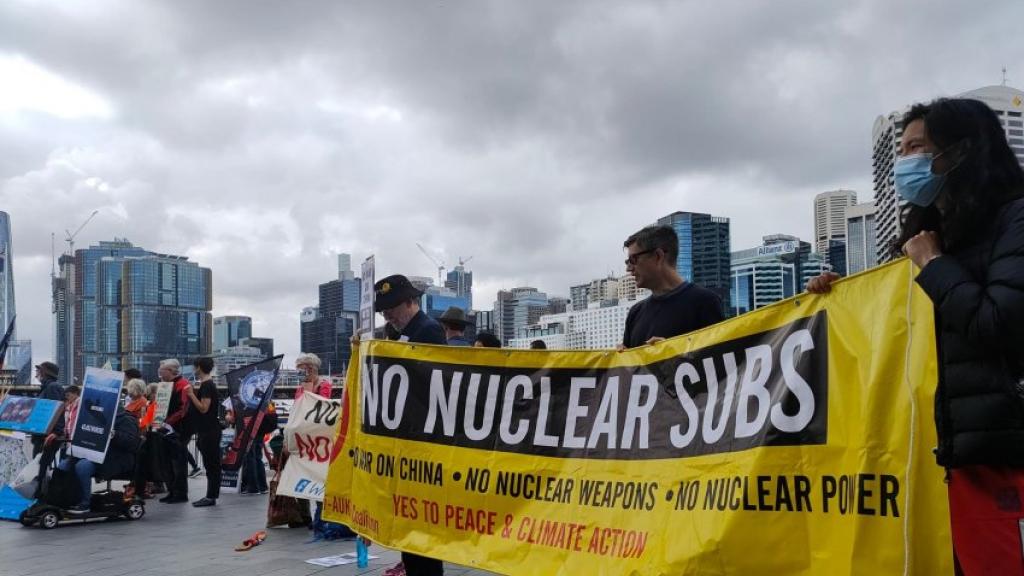Socialist Alliance (Australia): Reject the war drive on China: For a foreign policy based on justice, human rights and climate action

The North Atlantic Treaty Organisation’s (NATO) new Strategic Concept document, adopted at the Madrid Summit at the end of June, is the imperialists’ attempt to give new meaning to this Cold War military alliance.
It said its “key purpose” is “the collective defence of Allies”. However, its focus on “cooperative security” marked out new ground. It said the Russian Federation posed “the most significant threat” to regional and global security, closely followed by the People’s Republic of China.
Socialist Alliance condemns the Russian invasion of Ukraine as a gross violation of international law and supports the Ukrainian people’s right to self-determination, including the right to resist Russia’s invasion. We call on Russia to immediately withdraw its forces from Ukraine.
However, in doing so, we recognise that the Western powers that are supporting the Ukrainian government are not motivated by concern for a mythical “rules-based order”.
The recent decision by both Finland and Sweden to drop any meaningful opposition to the Turkish government’s oppression of the Kurdish freedom movement and its genocidal invasion and occupation of northern Syria as a condition of NATO membership are proof of this.
The role of NATO is not that of a “defensive” alliance, or upholding liberal democratic values, but to ensure the United States and its western allies’ dominance within the global capitalist world order.
NATO’s role in the post-Cold War era in instigating the wars on Afghanistan and Libya and the subsequent devastation that it caused to both countries is a reminder that it is a barrier to building a world free of conflict and war.
NATO should not be extended to the Indo-Pacific, but abolished.
The governments of the wealthy “liberal democratic” Western nations are every bit as cynical and violent as Russian President Vladimir Putin.
However, the former mostly inflict their wars on the people of the Global South, and often try to subcontract the violence to local enforcers. Arming Saudi Arabia to inflict incalculable suffering on Yemen is a case in point.
The Russian invasion of Ukraine has afforded the Western powers an opportunity to both weaken Russia and to build public support for much greater military spending.
This is the context of NATO — a Cold War relic — adopting a new aggressive posture in the world.
Not only are the US and NATO hoping to inflict a military and economic defeat on Russia, they have made it clear they intend to “contain” economic competition from China, including by force.
The Australia, United Kingdom, United States (AUKUS) agreement must be seen in the wider context of the Quadrilateral Security Dialogue (Quad) and the proposal to extend NATO to the Indo-Pacific.
Under AUKUS, Australia will be further militarised and turned into a US garrison.
This includes:
- More deployments of US aircraft, surface and subsurface vessels and joint war games;
- Four new military bases;
- Two new bases for the militarisation of space;
- Greater co-operation in hypersonic weapons and cyber warfare, underwater systems, artificial intelligence and long-range strike capabilities; and
- Support for combined military operations in the region.
The Anthony Albanese Labor government was quick to support NATO’s new dangerous blueprint and it has indicated it is prepared to support the US strategy of confrontation with China, no matter the cost.
The fact that former Liberal Prime Minister Tony Abbott praised Labor for continuing the Coalition’s policies regarding defence demonstrates that the push for greater militarism and war with China is bipartisan policy.
A conscious propaganda campaign stoking fears about Chinese aggression has been promoted for years to build public support for greater military spending and confrontation — possibly over Taiwan. The primary aggressors in this new cold war in our region are the US and its allies, including Australia. At the same time, Socialist Alliance respects the right of the Taiwanese people to self-determination and is opposed to the forcible integration of Taiwan into the People's Republic of China.
Socialist Alliance also recognises the genuine concerns of the Uighur, Tibetan and Hong Kong people around large scale repression and human rights abuses.
US annual military spending is triple that of China and has been for many years. Furthermore, China is ringed by US bases, which the US intends to supplement with a network of precision-strike missiles, along the so-called “first island chain” — a Cold War concept aimed at containing the influence of the former Soviet Union and its allies in East and Southeast Asia — as part of $27.4 billion in spending to be considered for the Indo-Pacific region over the next six years.
Every attempt by China to respond is presented as proof of its hostile intent.
The determination by the US and its allies to hem China in, both economically and militarily, even at the risk of provoking another major war is reckless and shows no regard for the well-being of the Chinese people as well as small island nations in the region.
The existential threat posed by runaway global warming means that the next 10 years are critical for humanity to unite to prevent catastrophe.
But it is impossible to do this if governments spend billions on a new cold war instead.
Socialist Alliance is committed to campaigning for:
- Australia to withdraw from AUKUS, ANZUS and the Quad;
- Closing all US bases and banning nuclear ships in Australian ports;
- Cancelling the plan to purchase nuclear-powered submarines; and
- No war on China.
Socialist Alliance stands in solidarity with all people’s struggles against imperialism, war and occupation and is committed to supporting the anti-war movement and the newly- formed anti-AUKUS campaign groups.
This statement was adopted by the Socialist Alliance National Council at its meeting on September 18.